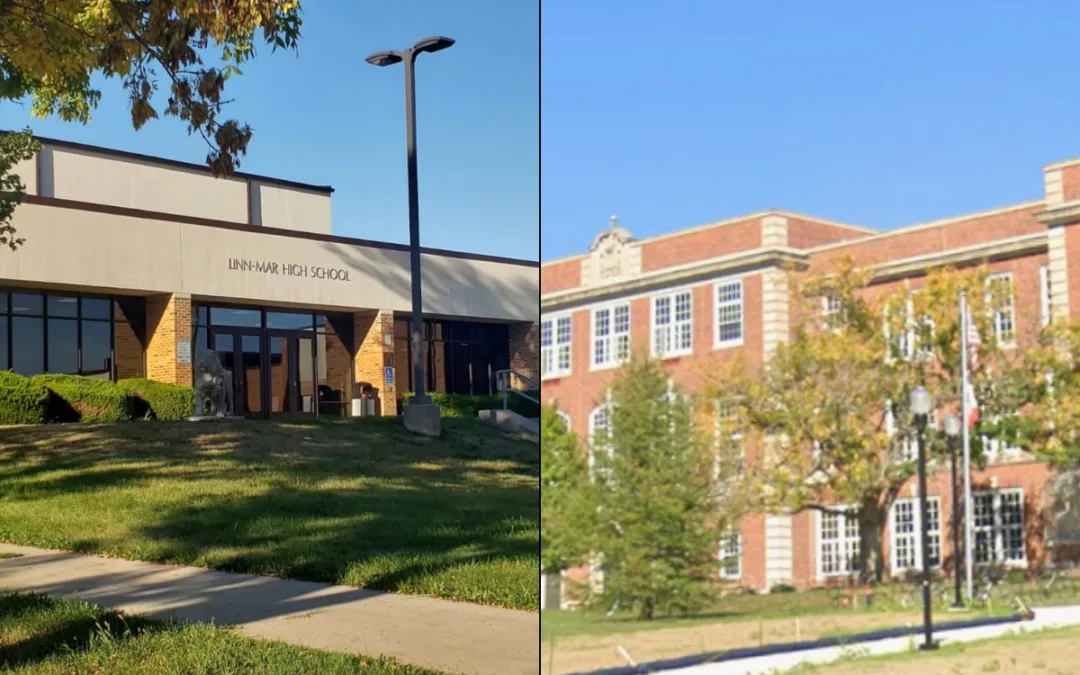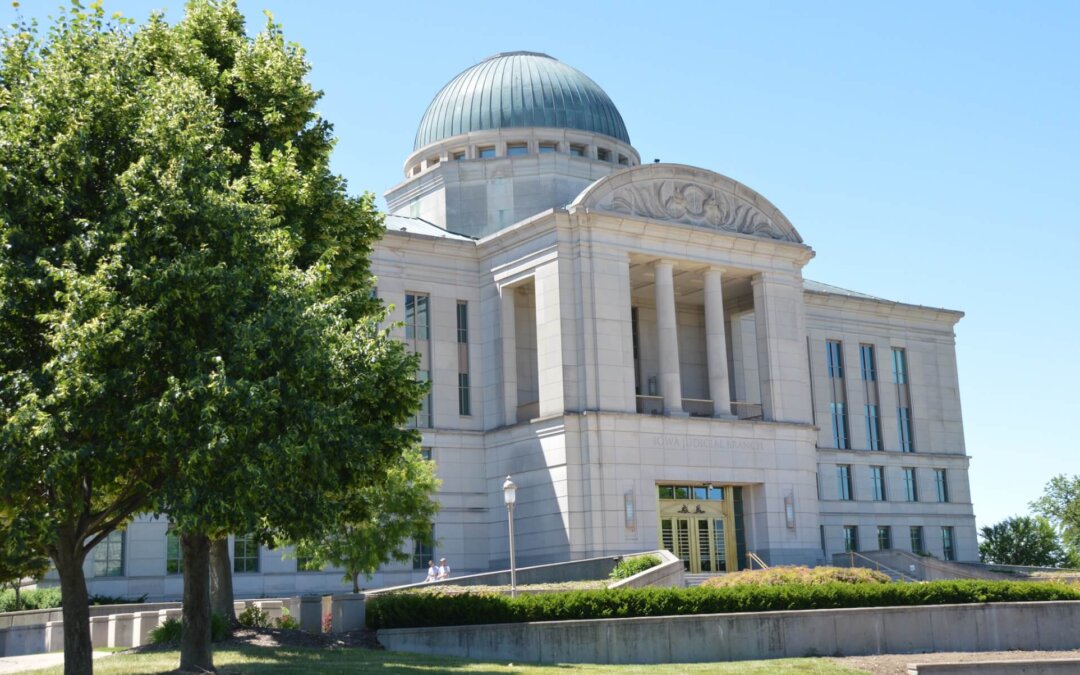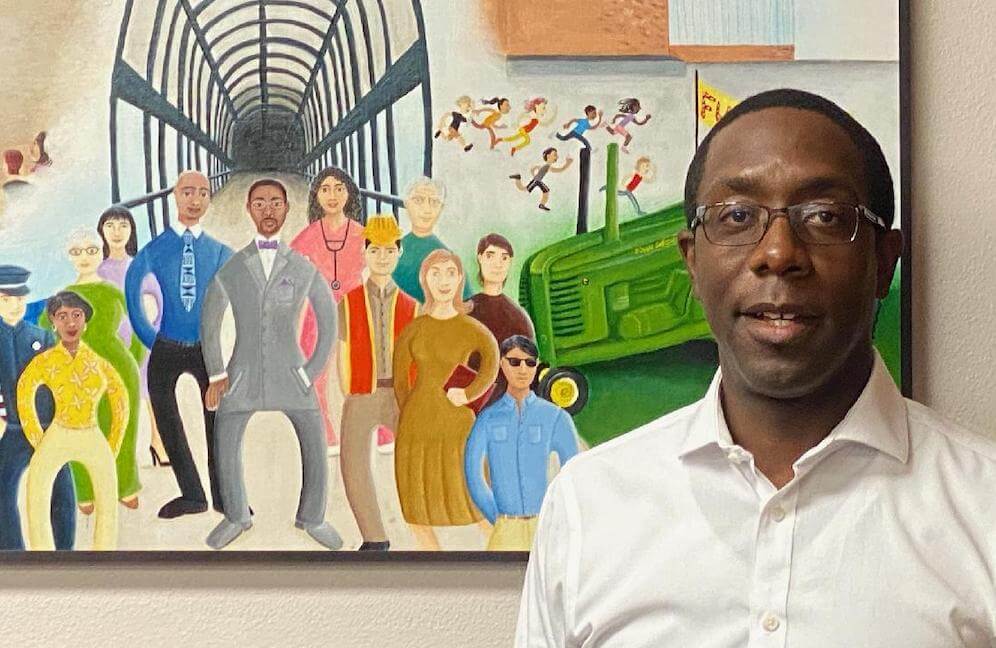
Mayor Hart at his desk beneath artwork commissioned from Chaveevah Cheryl Banks Ferguson
Yesterday, Mayor Quentin Hart highlighted some of Waterloo’s major accomplishments in his annual State of the City address. I had a chance to talk to him beforehand about additional accomplishments that he considered important.
While Waterloo has gotten significant attention for problems and challenges impacting its diverse communities, community and city leaders feel that doesn’t tell the whole picture — and focusing only on those can perpetuate an unfair stereotype of Waterloo. They also try to point to the significant progress and positive accomplishments that has improved the quality of life and sets up bigger change in the future.
“Yes, there’s systematic racism, structural challenges,” Mayor Hart said. “But we have incredibly talented people here that get overlooked every day. We’re not going to be overlooked anymore.”
Black and Minority Business Development
Hart is happy to see the resurgence of minority entrepreneurs in downtown Waterloo. He believes, within a two-block radius, there are about 4-5 African American businesses.
“Across the bridge, you see The Soul Book Nook opening up,” said Hart. “There’s probably more African American businesses in our downtown center than there is anywhere else in the state, and then you mix that in with more Latino businesses, Bosnian businesses, which really gives us a unique downtown revitalization story as well.”
There are also organizations to help minority businesses, like the 24/7 Black Leadership Advancement Consortium, which was established to address the disparities referenced in the 24/7 Wall Street Report that labeled Waterloo “the worst city for Black Americans.” Hart also mentioned the creation of incubators for minority businesses.
[inline-ad id=”2″]
Police Reform and Reduction in Lawsuits
Amidst protests against George Floyd’s murder by Minneapolis police, Dr. Joel Fitzgerald joined the Waterloo Police Department as Chief of Police, the city’s first Black chief.
“On June 1st,” said Hart, “the Chief and I made a commitment to our residents, to people, that we will institute change and we’ve taken significant steps, more so than a lot of police departments in the entire state of Iowa. I’m absolutely proud of that.”
Hart said that by June 27th, Fitzgerald had launched changes to the mission statement, standard operating procedures, and policies pertaining to the use of force, prohibited restraints, duty to intervene, and other items called for by protesters.
By August 24, the operational changes were packaged into an ordinance and presented to the Waterloo City Council, where it passed 7-0. While the changes don’t reflect all being requested by local Black leaders, it’s a start.
Mayor Hart also noted that when he started, the city faced numerous lawsuits due to excessive force and/or killings by the Waterloo Police Department, resulting in the payment of millions of dollars.
“We’ve only paid out $168,000 in five years of me being in office,” said Hart. “But you’ve got to remember, that could be a car accident, that could be something that happened to someone’s property.”
[inline-ad id=”3″]
Neighborhood And Economic Development
“It feels incredible,” said Hart, “to be in the position that I’m in and see the overall rebirth and renovation of some of the neighborhoods in the area that I’ve grown up in.”
One of the neighborhoods is Walnut, a national historic district.
“We’ve gone in there with a new partnership to renovate, to build houses, to fix up houses,” said Hart, adding that there are also a number of new businesses. “You have Spellers Hardware Store. You have Big Q’s Clothing. You have the Boys & Girls Clubs teen center that was built. You have Rodney Anderson, who is an African American businessman, not only owns the little power center there [shopping mall], but also the proposal to build a grocery store – all around this area.”
Hart also called out the partnerships with Habitat for Humanity and Hawkeye Community College to build houses in areas that haven’t seen new housing in years.
In the northeastern part of the city, “Logan Plaza was absolutely a wreck,” he said. “It was dilapidated buildings, but I’ve been able to work with an entrepreneur that’s gone in and created medical centers. There’s a Kwik Star, a Burger King, and people say, ‘Well, it’s ONLY a medical center. It’s ONLY a Kwik Star.’ But if you take a look at who is working in there, it’s people I’ve grown up with, people with degrees that are actually working in there because they choose to.”
[inline-ad id=”1”]
More African Americans in Leadership Positions
While Mayor Hart, State Rep. Ras Smith, and Chief Fitzgerald receive significant attention for their roles in the city, there’s an increasing number of African Americans in leadership positions, with responsibilities that influence the entire community. They include:
- Robert L Smith, Jr., Executive Director, UNI Center for Urban Education (UNI-CUE)
- James Lee, CEO and Bryan Burton, Director of Operations of Boys & Girls Clubs
- Nafissa Cisse Egbuonye, Director, Black Hawk County Health Department
- Kingsley Botchway, Chief of Human Resources & Equity, Waterloo Community Schools
- Lance Dunn, Human Resources Director, City of Waterloo
- Rudy Jones, Director, Waterloo Community Development Office
- Felicia Smith-Nalls, Coordinator, Waterloo Neighborhood Services
- Abraham Funchess, Executive Director, Commission on Human Rights
- Waterloo City Council member Jerome Amos
- Waterloo School Board members Endya Johnson and Astor Williams
- Tavis Hall, Executive Director, Experience Waterloo
- Sharina Sallis, Co-Founder, Economic Inclusion of the Cedar Valley
- Robert Welch, Director of the Head Start program
“The face of leadership here is becoming more diverse every day, and we’ve had people moving from outside the community wanting to be here in these positions as well,” Hart said.
[inline-ad id=”4″]
Reducing Employment Barriers for Those With a Criminal Conviction
Iowa Works partnered with Iowa Legal Aid to offer expungement clinics to help those with a criminal conviction to expunge—or “seal”/clear—their records.
Additionally, Human Rights Commission Executive Director Funchess initiated the Fair Chance Initiative, which went into effect on July 1, 2020 after being passed by the Waterloo City Council. The Initiative, which has faced some backlash, prevents employers from asking a potential candidate about a criminal conviction at the beginning of the interviewing process and instead asking only the final candidate at the end. Hart feels that the backlash is because businesses don’t fully understand the Initiative—and that it wouldn’t apply to some jobs, like police officer.
“We’re just asking that people get an interview,” said Hart, “and a fair chance for a job. If they’re not qualified, so be it. At least give them a fair chance to have an interview for a position based on their merits, education, or experience.”
[signup_form]
A new program, Momentum, also assists these and others with barriers to employment, with resume preparation, interviewing, and career objectives.
Hart feels that these efforts are important and have significant impact because “one disparity was with regards to the disproportionate numbers of African Americans that have criminal charges versus whites in our state.”
The Future
While Hart admits there’s a lot more work to do, he wants to build awareness of the work that has been done.
“When you have so much work that you have to do,” he said, “from health disparities, from economic disparities, from housing disparities, from educational disparities, it’s hard to see progress when it actually happens. So I understand where people are coming from because I was one of them—I still am somewhat. Because, even for me, working internally, it’s never fast enough. But it’s a process. And it is trying to put in the type of infrastructure that’s going to create lasting changes vs. one quick initiative.”
by Rachelle Chase
Posted 9/16/20
Iowa Starting Line is an independently-owned progressive news outlet devoted to providing unique, insightful coverage on Iowa news and politics. We need reader support to continue operating — please donate here. Follow us on Twitter and Facebook for more coverage.
Politics
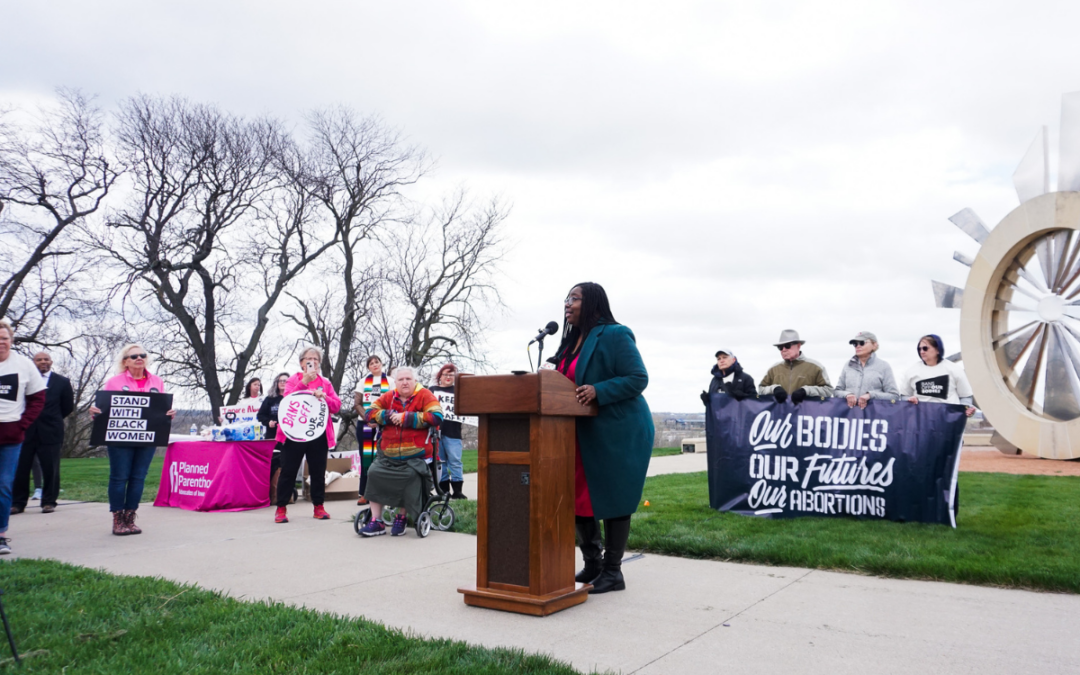
Abortion supporters rally before Iowa Supreme Court arguments
Abortion saved her life seven years ago and Leah Vanden Bosch is more grateful for it now than ever. Vanden Bosch, who serves as the development and...
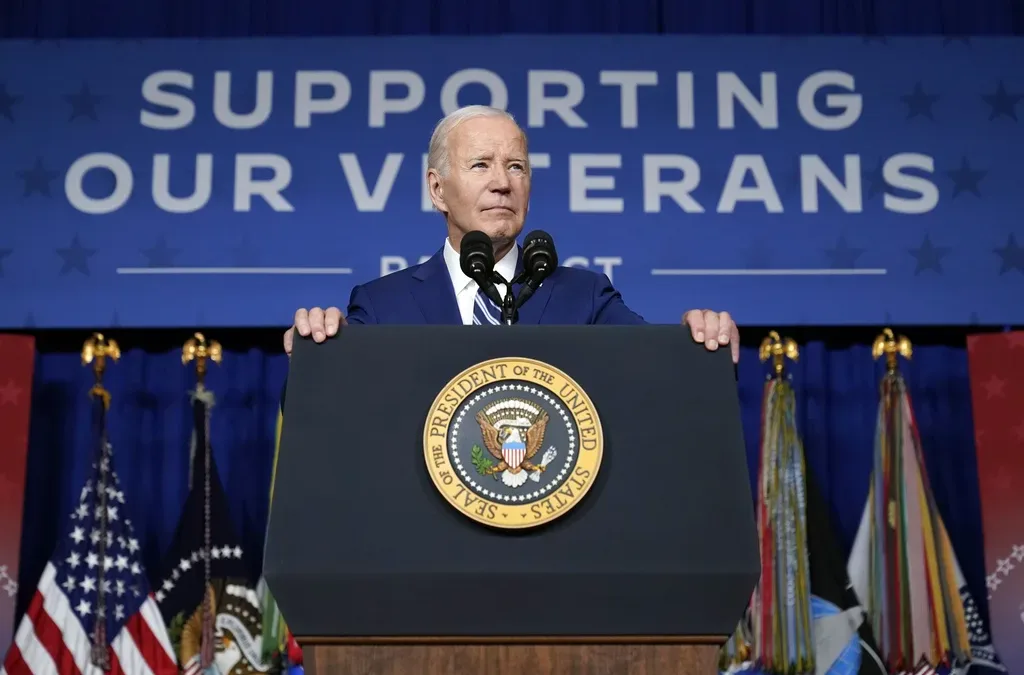
New VA program to help more than 40,000 veterans stay in their homes
The Department of Veterans Affairs (VA) will launch a “last resort” program for tens of thousands of American veterans who are in danger of losing...
Local News

No more Kum & Go? New owner Maverik of Utah retiring famous brand
Will Kum & Go have come and gone by next year? One new report claims that's the plan by the store's new owners. The Iowa-based convenience store...

Here’s a recap of the biggest headlines Iowa celebs made In 2023
For these famous Iowans, 2023 was a year of controversy, career highlights, and full-circle moments. Here’s how 2023 went for the following Iowans:...



